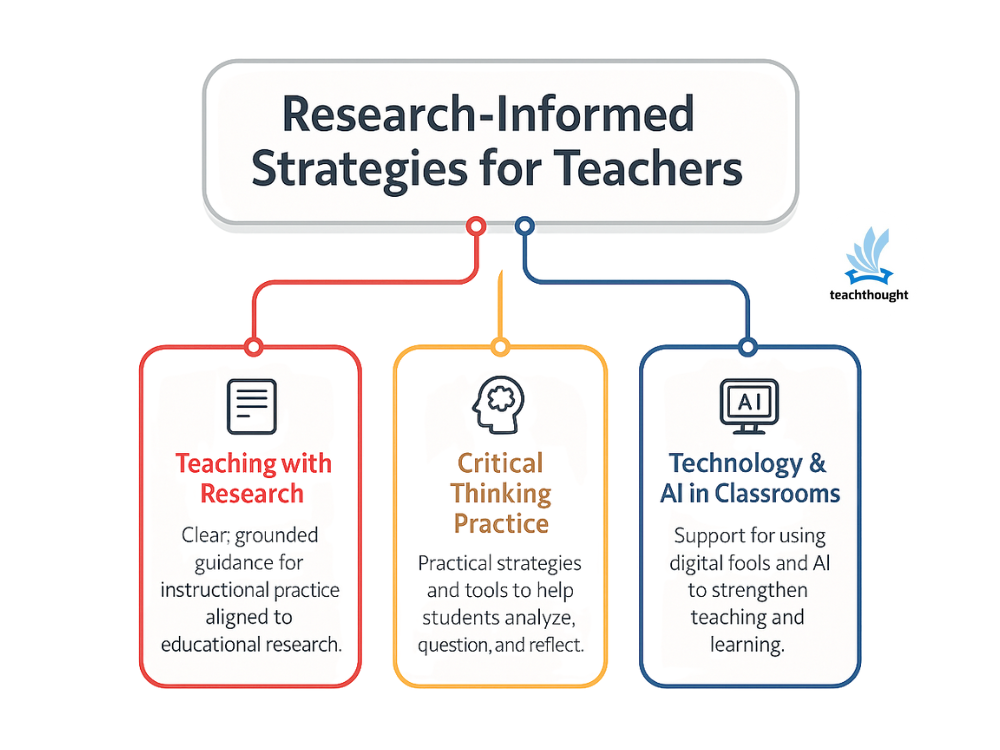What Can Teachers Change?
by Terry Heick
In Visible Learning, John Hattie extracts data from over 50,000 studies in an attempt to uncover what the data says works. In that way, he isn’t going all editorial on us, but rather working his fingers through the data and packaging it in a way that is consumable by educators like you and I.
In a recent interview (the interview has been removed since publishing this post; you can likely find it elsewhere with a little searching), Hattie did however offer a takeaway for teachers:
“Too many teachers are constantly thinking that if they had more time, resources and space they could make a difference. For some teachers that could be true, but for most the last thing they need is more. They need different, and that’s what they struggle with. It’s simple: if your teaching practice is not having an effect on your students’ performance, you must change.”
His hunch is dead on: teachers want more time, more resources, and more autonomy. And that shouldn’t make teachers seem demanding, but is simply feedback from ground zero.
This is what we’re trying to do, and this is what we need to get it done.
What Are You Changing?
There is something to this idea of less is more. For a teacher who can’t prioritize, organize, or integrate, more isn’t helpful or supportive, but rather an endless, wide-open and formless space.
Everyone needs structure–some kind of framework or pushback that offers form. 350 separate reading comprehension apps only help if, for whatever reason, you needed 350 separate reading comprehension apps. Otherwise, you’re choking separating the wheat from the chaff while taking time away from the critical integration.
So Hattie says teachers don’t need more, but rather different. Semantics?
Hattie continues, “…if your teaching practice is not having an effect on your students’ performance, you must change.” Well, yeah. You probably know that, which is in part why you’re here: looking for thinking, ideas, tools, and models to improve your craft.
But in pursuit of that change, what do you change?
Do the constant moving parts in education—technology rituals, global realities, cultural values, and on and on–demand that we stand wide-eyed and at attention in the face of all this change, each day replacing adjusting this model just so, revising this assessment just so and integrating this literacy strategy at the right time, in hopeful pursuit that these changes might parallel those that exist in the world out there, and somehow improve the future of that child?
See also The Definition Of Intrinsic Motivation
Or do you need fewer new ideas and apps and curricula and strategies? Less professional development, certification, and collaboration with peers? Sounds crazy, and this isn’t all meant to be taken literally–but think for a moment: Is everything you need to provide what your students needs from you already right beneath your nose, you somehow just missing the right timing or scale or sequence of it all?
It depends on what you’re trying to change–so be very clear with yourself about that. Adding more is only changing quantity; that’s not qualitative change.
A great teacher can change a lot. The climate of a classroom. A reading level. Affection for reading. Or History or Science or Math. The tendency to think critically and ask tough questions and challenge convention. The confidence level of a student. The willingness of a student to dream. Now take these ideas and dozens of others and apply them to dozens of students every year for–maybe–dozens of years.
That’s change.
So when you look, then, what are you seeking to change? Teaching tools? Your own thinking? The mindset of your students? If you had to start somewhere–with one idea or ‘thing’ to change, what would it be? What if your only goal was to change the arc of your students’ lives?
If that was your goal, how would your teaching need to change in parallel?

